Photo

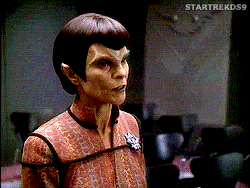


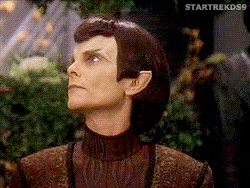
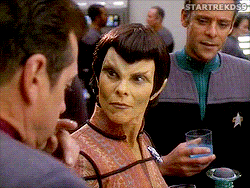

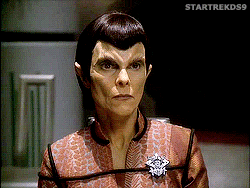
Senator Kimara Cretak | in Inter Arma Enim Silent Leges
requested my anonymous
549 notes
·
View notes
Text
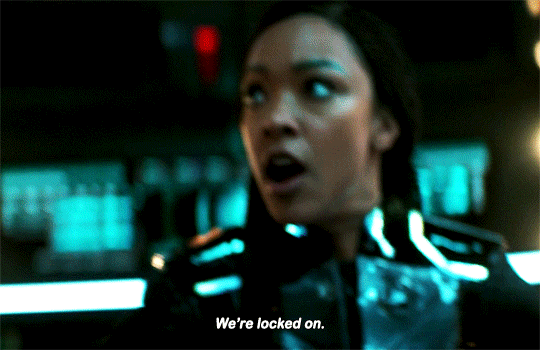
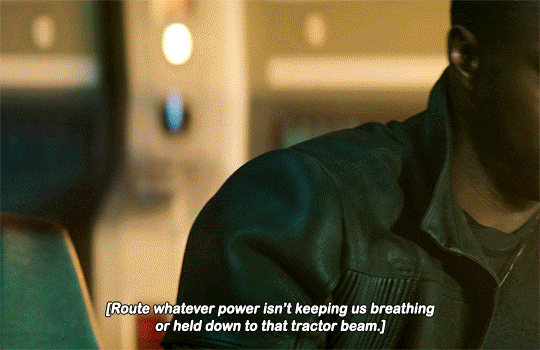
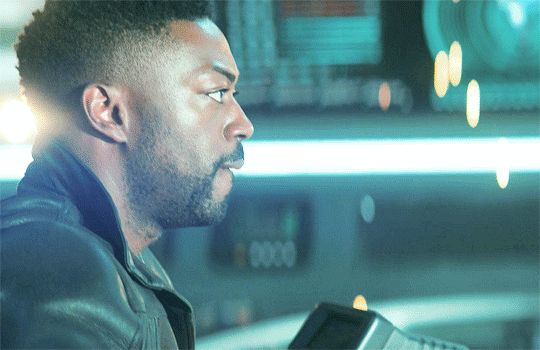
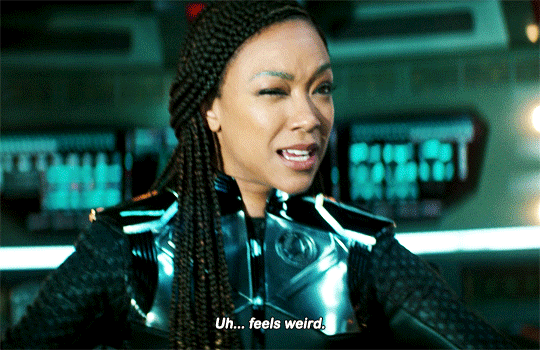


73 notes
·
View notes
Text
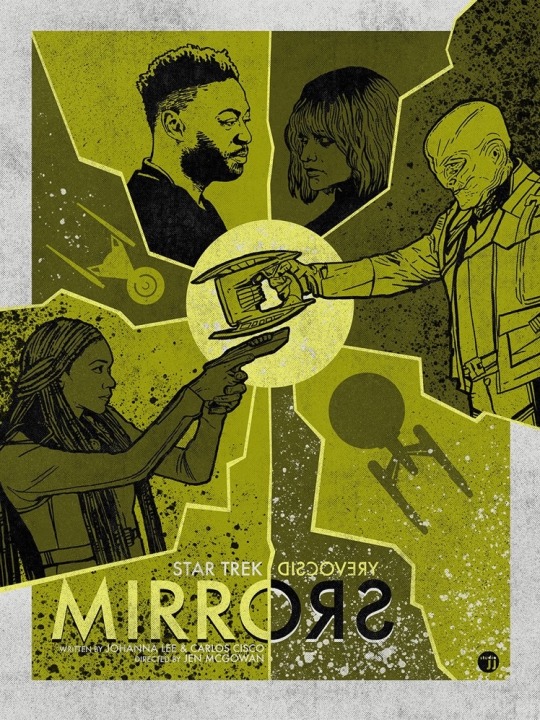
Really enjoying the new season of Star Trek: Discovery! Here's my retro poster for yesterday's newest episode "Mirrors". Congrats to all involved and can't wait for next week!
91 notes
·
View notes
Text

Tuvok Voice: You are her official right hand while I have been making detailed psychological observations about her for the past four years - we are not the same.

[Patreon | Ko-fi]
101 notes
·
View notes
Text
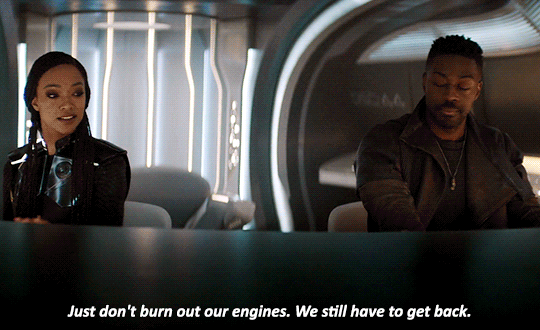
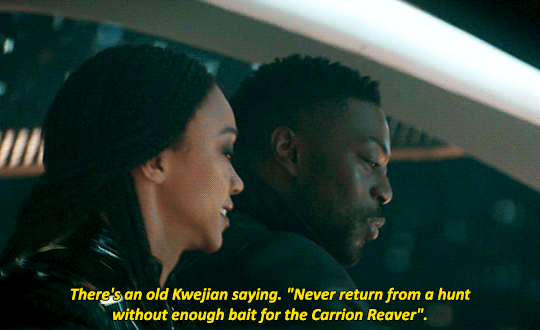
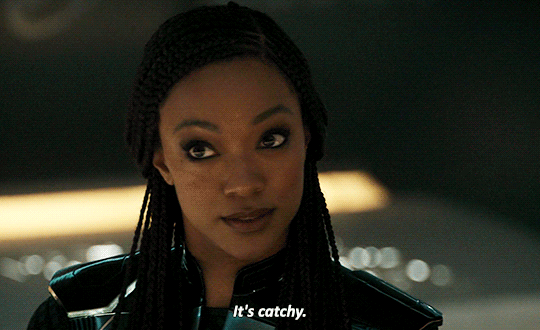
50 notes
·
View notes
Text
Also please tell me your favorite femslash rarepairs in the tags!
#i have a big soft spot for b'elanna/kasidy#although the most niche thing i ship is saavik/nilani kahn#poll
174 notes
·
View notes
Text
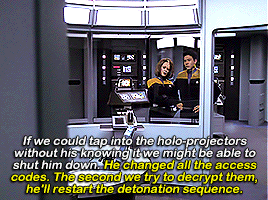
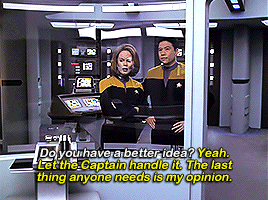


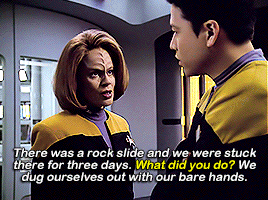
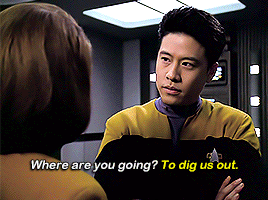
Star Trek: Voyager
Warhead
#trekedit#b'elanna torres#harry kim#voy#star trek voyager#compare and contrast with the scene from dreadnought that i giffed yesterday#(not the coloring. i redid this three times but this is the best i can do)#anyway i think a lot about roxann dawson saying that in her opinion b'elanna is v judgmental and she judges herself the harshest
35 notes
·
View notes
Text
Really interesting to consider “Collective” in the same continuum of “Survival Instinct”, and how these episodes pan out very differently for two characters (Seven and First) who find themselves suddenly disconnected from the Borg collective and lash out with a similar mixture of fear and anxiety about their lack of control, especially when their fellow drones start to assert an individuality that neither Seven nor First are equipped to deal with. Seven survives, by dooming the rest of her unimatrix; First does not, and with his demise the rest of the Borg kids can board Voyager and be reclaimed from the Collective.
I don't know if the similarity between Seven and First was drawn intentionally by the writing but in my opinion it's pretty evident. As drones in an unfamiliar situation they are unprepared to deal with the discomfort of re-emerging thoughts of a life pre-assimilation, and their reaction is to seek a return to the Collective by whatever means necessary. In addition to that, they can't cope with alone-ness at all, so they ensure the drones who are with them will help them to return to the Collective as well by restoring ‘order’—in the case of First, by establishing a pecking order where he is the indisputable leader, and in Seven's case by assimilating the rest of her unimatrix in a mini-collective. I think Seven only succeeds where First failed because Seven by that point was an adult drone who was entirely capable of assimilation, while First, having emerged from a maturation chamber too early, did not have the ability yet (in “Collective” Icheb mentions that they've all been trying to learn to assimilate but have failed so far). This is a powerful metaphor too—adults have powers of coercion that kids might not have yet developed fully, and it points to latter's better chances of successful reclamation.
Except First pays for his stubborn inexperience dearly, while Seven does not, despite her being much more culpable. I've been wondering how she might feel about the whole encounter, since “Collective” doesn't offer much in this respect. I wonder if, despite First's relentless hostility towards her, Seven was able to recognize her former self in him. I think she might have, given this exchange right at the end:
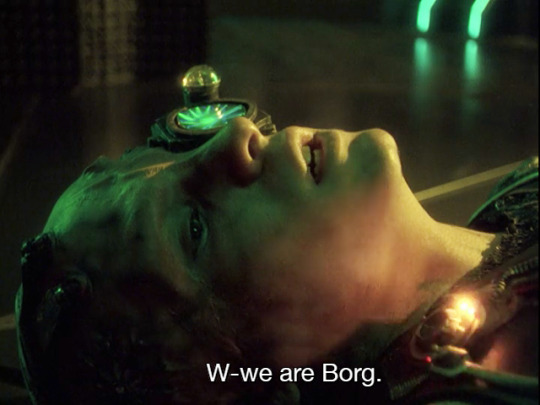


I also wonder if First's fate was yet another reminder for Seven of the many ways in which she failed both as a drone and as an individual, and especially of the exceptional circumstances of her continuing survival. Other former drones die while facing the same difficulties and obstacles Seven has encountered, but she survives against all odds, often because the people around her have chosen to go above and beyond for her, but also just out of luck. It's a constant in her life, both on Star Trek: Voyager and Star Trek: Picard. I have to imagine it's a weight that keeps becoming heavier as the years pass.
#voy#seven of nine#ep: survival instinct#i wanted to make gifs about this parallelism but the two episodes don't gel super well together#so here i am writing Posts#borg tag
29 notes
·
View notes
Text
“The Raven” is so weird to rewatch for me because it's definitely an important Seven episode but it's early in season 4 so Jeri Ryan had not yet landed on the baseline for Seven as a reclaimed former drone and her line delivery is... strangely soft? not as declarative and imperious? compared to what Seven does in most other episodes. She gesticulates a lot more too. It almost doesn't seem like the same character to me (although she is, obviously). It's something Ryan has talked about as well:
As my son grew up, he really became a Star Trek fan, and so he would rewatch some of the old episodes and I would catch little things here and there with him. It was funny, because we had sort of progressed the character and then all of us together—the writers and the producers and myself—decided to pull it back, we made it more gradual. If you look at the first couple of episodes, she was much more loose and free than she ended up being later, so we did sort of pull it back.
(From “The Fifty-Year Mission: The Next 25 Years” by Mark A. Altman and Edward Gross)
And here as well:
“Early on, I think we started to make [Seven of Nine] too human too quickly,” Ryan says. “The way I was playing her—which is how I auditioned as the character—was too free and too ready to embrace everything about humanity, I think early on I made her a little too loose. Once we had found who she was as a Borg drone, who she was physically, and who she was with an attitude, then I think we all realized that we were in danger of making her too human. So the writers, producers and I, together, kind of went, ‘Ahh, let's pull this back a little bit, give us somewhere to go.’”
(From “Star Trek: Voyager - A Celebration” by Ben Robinson)
8 notes
·
View notes
Text
I can't find the post anymore (which is for the best tbh) but I just remembered the one time I thought about the pointless AU where Seven's baby name was Anouk Jansen and made myself laugh again
5 notes
·
View notes
Text

me when I'm definitely joking so I (softly) say "I know how you're feeling"
(From "Star Trek Scriptbooks Volume Two: Becoming Human")
150 notes
·
View notes
Text
“In the first year [of Star Trek: Voyager] I talked with [executive producer] Jeri Taylor about directing,” Roxann Dawson recalls her own route to the director's chair. “I had directed in the theater and I just liked bossing people around! I wanted to give it a try but I honestly didn't know if I'd like it. I told Jeri I'd love to learn, if they'd give me the opportunity. Then she and Rick Berman opened up Director in Training.”
Over the course of seven seasons, [Robert Duncan] McNeill and Dawson, along with fellow VOYAGER cast members Tim Russ and Robert Picardo all helmed at least one episode of the show as directors. The process of swapping Starfleet uniform for megaphone involved going back to school. “We had DiT school,” explains prolific VOYAGER director David Livingston. “‘Director in Training,’ where Rick Berman would allow actors and crew to go through a training program, observing as much of production and post-production as their schedules would allow, showing a commitment to study. Even though I went to film school, I had never directed on a large scale until I got to STAR TREK. Rick offered me that opportunity.”
[...]
“I became a Director in Training and I could go into everything,” adds Dawson. "I observed other shows that were shooting at Paramount. I did so much observing, I would be on an all-nighter downtown in Los Angeles on Buffy the Vampire Slayer, then come into work on VOYAGER at 4am so I could take a nap. I learned a lot and put myself out there.”
“Roxann would come and sit with me in the editing room,” remembers Livingston. “She was very observant, asked a lot of questions and it was clear she knew exactly what was going on. Roxann recognized that she needed to go through the process to be grounded, not only in the aesthetics of how to do this, but the technical aspects of it. I respected and admired her for that.”
While directing his first episode of VOYAGER during season 6, John Bruno remembers Dawson's observant approach to DiT school: “I had one day on set in the conference room when I was shooting two overlapping cameras. Roxann was standing beside me, looking over my shoulder at my storyboards. I explained what I was doing, and then I realized she was going to direct a show. She was following me, and I didn't really know what I was doing!”
[...]
“The reason I started directing later [in the course of the show] is because I was pregnant and we waited until after I gave birth in order for me to start,” says Dawson, whose first directing assignment was the early season 6 episode ‘Riddles’. “How prepared can you be for something you've never done before? You can prepare and prepare and prepare, but if it's an experience you've never had before, for somebody who really likes to be prepared, it's torture. There are a million scenarios that you'll be facing, things that you couldn't possibly have prepared for because you had no idea and no experience. It's learning to deal with all that with grace under pressure.”
[...]
“You're with people that you love and want you to succeed,” Dawson says of the support she received from her fellow VOYAGER ensemble. “It made me a better actor. I began to understand that I'm not just dealing with this part of the pie, but the entire pie. All of a sudden there were so many moving parts of which I was this much a part of. Often, actors need to be myopic, they need to concentrate on what they're doing and I respect that. But as a director, I've come to respect and understand those insecurities, understand that actors need to do that in order to show up and do the job. But at the same time, I've had payback. I've been on the other side, I've paid my dues in terms of actors doing things that have cost me time and money and face. On every level! I've had payback because in the beginning I was one of those actors who judged every director that came in.”
[...]
“After the first time I directed, I was in so much physical pain, there was so much pressure I didn't know if I wanted to continue with it,” Dawson honestly recalls the aftermath of directing ‘Riddles’. “That was a learning experience. I would call my husband after the first few episodes I did and let him know if it was a two Advil day or a six Advil day. I literally was in physical pain!”
[...]
“After I did my first episode,” remembers Dawson, “Rick Berman came up to me at the wrap party for that season and said he liked ‘Riddles’. ‘So I'm going to give you another opportunity to fail.’ It was the oddest wording, I will never, ever forget that!” Dawson subsequently directed ‘Workforce, Part II’ during season 7, and has since become a highly sought-after director on some of modern television's biggest shows.
“I just fell in love with it,” Dawson say[s], looking back. “It was trial by fire, especially moving out of this STAR TREK world into the rest of the world that didn't care whether you succeeded or not. Now it's a complete and utter joy. I love directing and I have loved it for a long time. I'm so glad and so grateful to Rick Berman and Jeri Taylor, who gave me this opportunity and literally changed my life.”
From “Star Trek: Voyager - A Celebration” by Ben Robinson (2020)
#star trek voyager a celebration#roxann dawson#several parts of this are striking but the fact that she basically didn't sleep to go see buffy being filmed...#trek novels#<- not a novel. this is my trek book tag
11 notes
·
View notes
Text



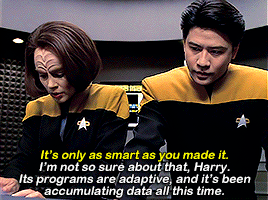


Star Trek: Voyager
Dreadnought
#trekedit#voyageredit#b'elanna torres#harry kim#voy#star trek voyager#i meant to make a parallel with warhead but that will get its own set
126 notes
·
View notes
Text

cute...
10 notes
·
View notes
